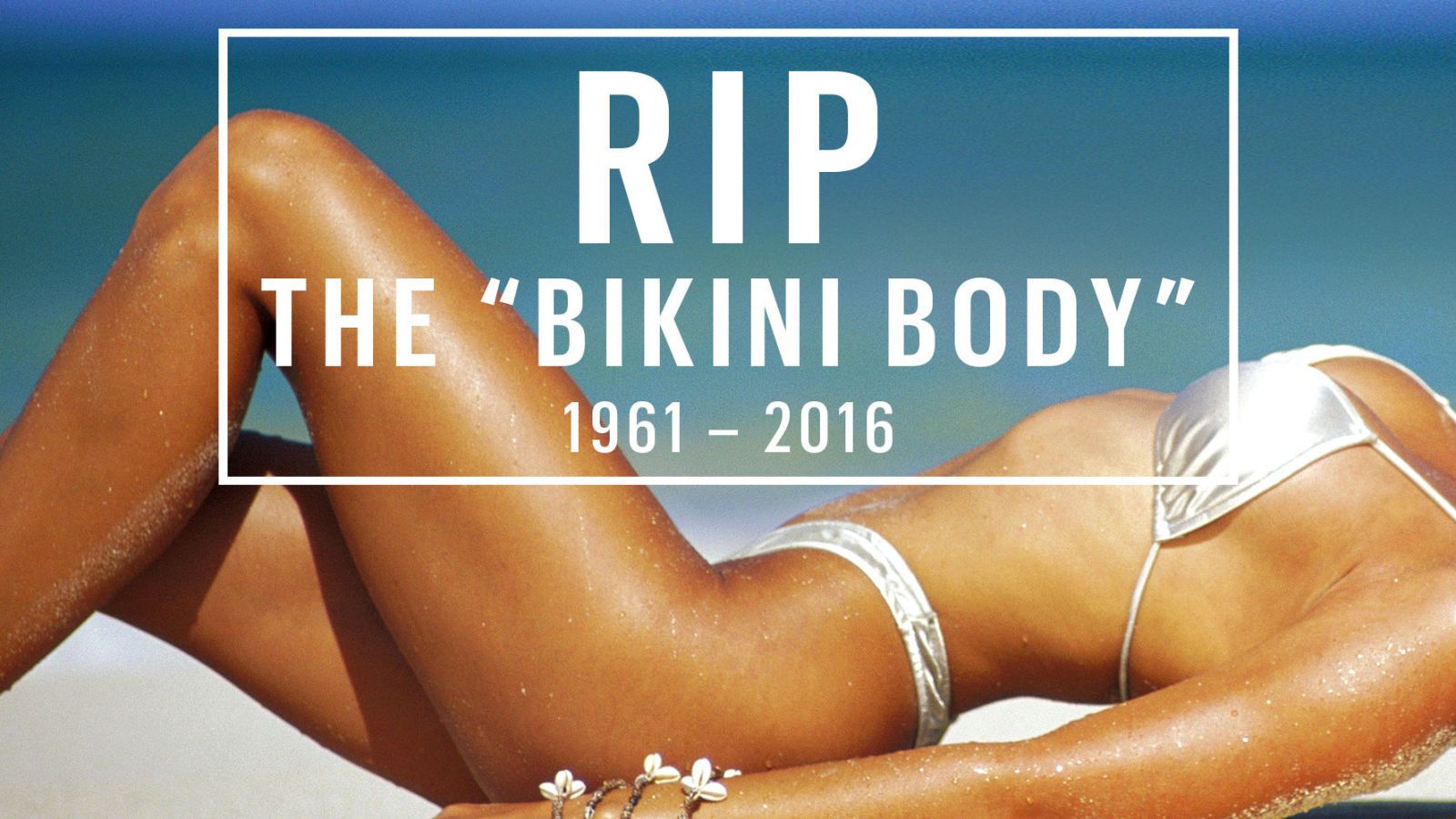The Death of the "Bikini Body"
Is the "bikini body" over? The fat positive movement is changed traditional beauty standards.

You've seen it, whether you've really noticed it or not—the sudden infiltration of all your social media feeds with "every body is a bikini body" messages. Empowering movements like the #ShowMeYourBawdy Instagram photo challenge (which features the tagline "Because your body is ready for summer. Just as it is.") have bubbled up to mainstream media and spilled over to your friends' Facebook pages, where everyone is, in unison, rallying around the cause: The idea that only one kind of body is appropriate to be seen in a bikini is complete and total BS.
A post shared by L A U R A B U R N S (@radicalbodylove)
A photo posted by on
Celebrities, magazines, and governments are even on board—Hilary Duff recently told Today.com that she "doesn't care to look absolutely perfect in a bathing suit," and fitness glossy Women's Health has gone so far as to ban the term "bikini body" from its pages. London's Mayor, Sadiq Khan, recently called to ban ad campaigns that promoted "unhealthy or unrealistic" body images. Her first focus? The notorious a weight-loss ad campaign featuring a thin bikini-clad model that read: "Are you beach body ready?"
is the "bikini body" history? Have we finally evolved beyond it?
Fat-shaming—once a niche term in the feminist blogosphere—is now not only on every woman's radar, but it also now has impactful consequences. In May, Facebook was pressured into publicly apologizing to Cherchez la Femme, an Australian group that ran an ad for an event called "Feminism and Fat" featuring plus-size model Tess Holliday in a bikini, for initially banning the photo because the image represented "body parts in an undesirable manner." Yes: Cue uproar.
A post shared by Kelly Augustine (@kellyaugustine)
A photo posted by on
So...is the "bikini body" history? Have we finally evolved beyond it? The term is, after all, 50 years old—and invented by advertisers to sell weight-loss products.
According to a detailed report from The Cut, the term "bikini body" was first used in a 1961 weight-loss campaign by the company Slenderella International. The ad, which ran in the New York Times and the Washington Post, read, "High firm bust—hand span waist—trim, firm hips—slender graceful legs—a Bikini body!"
I'll wear a bikini if I damn well please.
As women's bodies in swimsuits have become literally commodified—to be consumed in media by an audience—the aesthetic has shifted accordingly. But that's the real message of the recent pushback: My body is not here to be consumed by you. I'll wear a bikini if I damn well please.
The fight is, of course, far from over—straight size is still the dominant ideal in our culture. But the rise in bikini democracy spells a better way forward, and goes hand in hand with the growing fat-positive body movement that author Lindy West has written about in her new memoir Shrill. "The 'perfect body' is a lie," she writes. "I believed in it for a long time, and I let it shape my life, and shrink it."
Get exclusive access to fashion and beauty trends, hot-off-the-press celebrity news, and more.
Here's to no more of that.
A post shared by JustCurvy.com (@justcurvyfashion)
A photo posted by on
Follow Marie Claire on Facebook for the latest celeb news, beauty tips, fascinating reads, livestream video, and more.